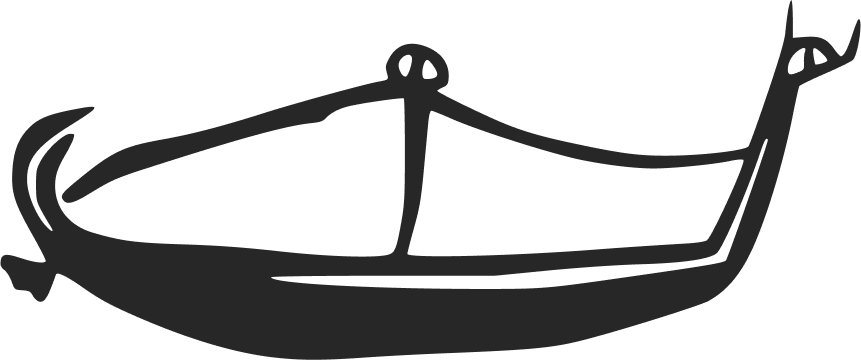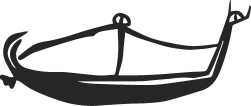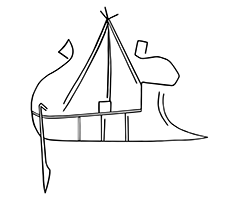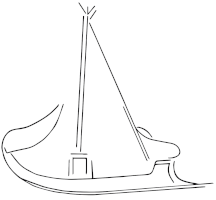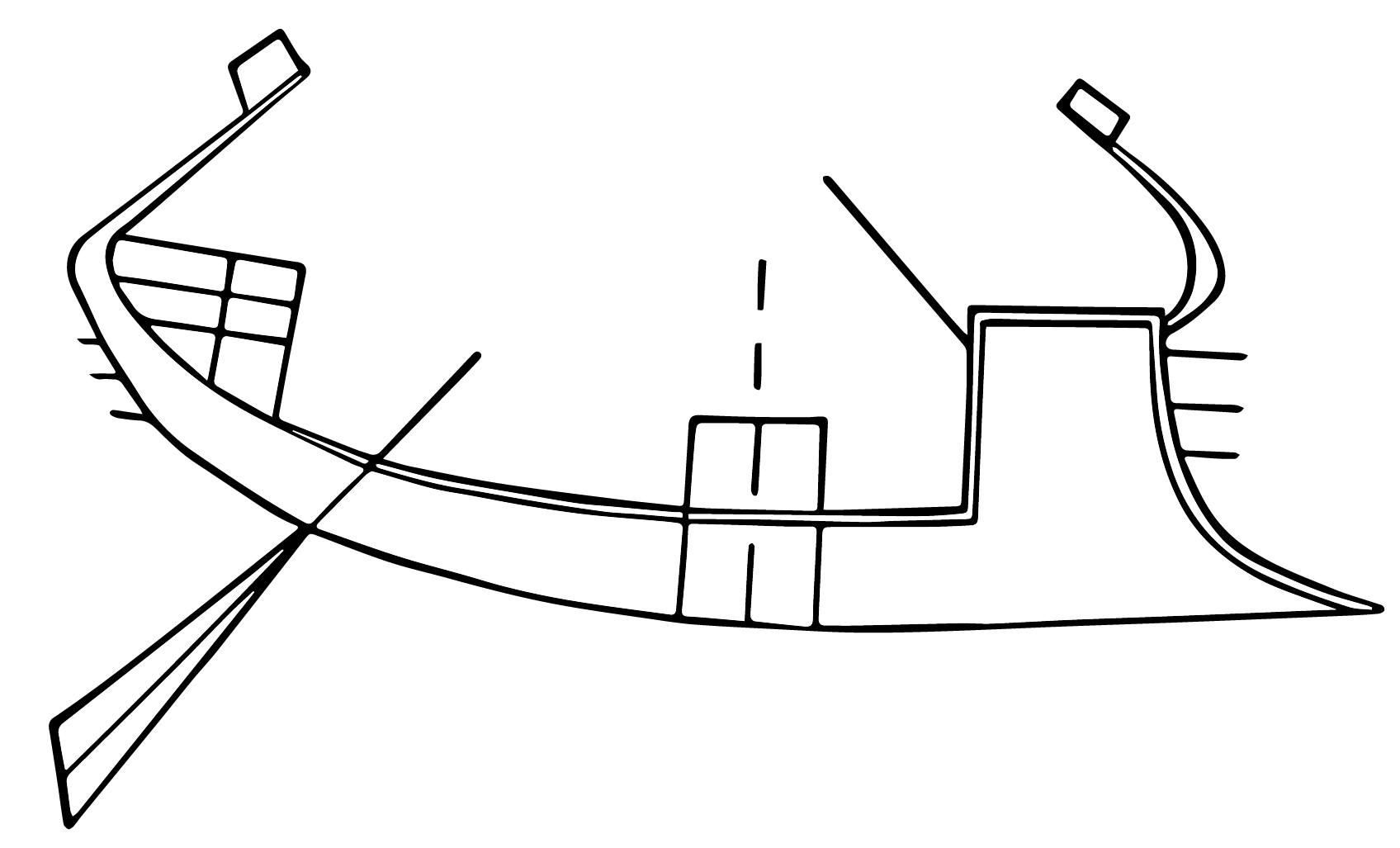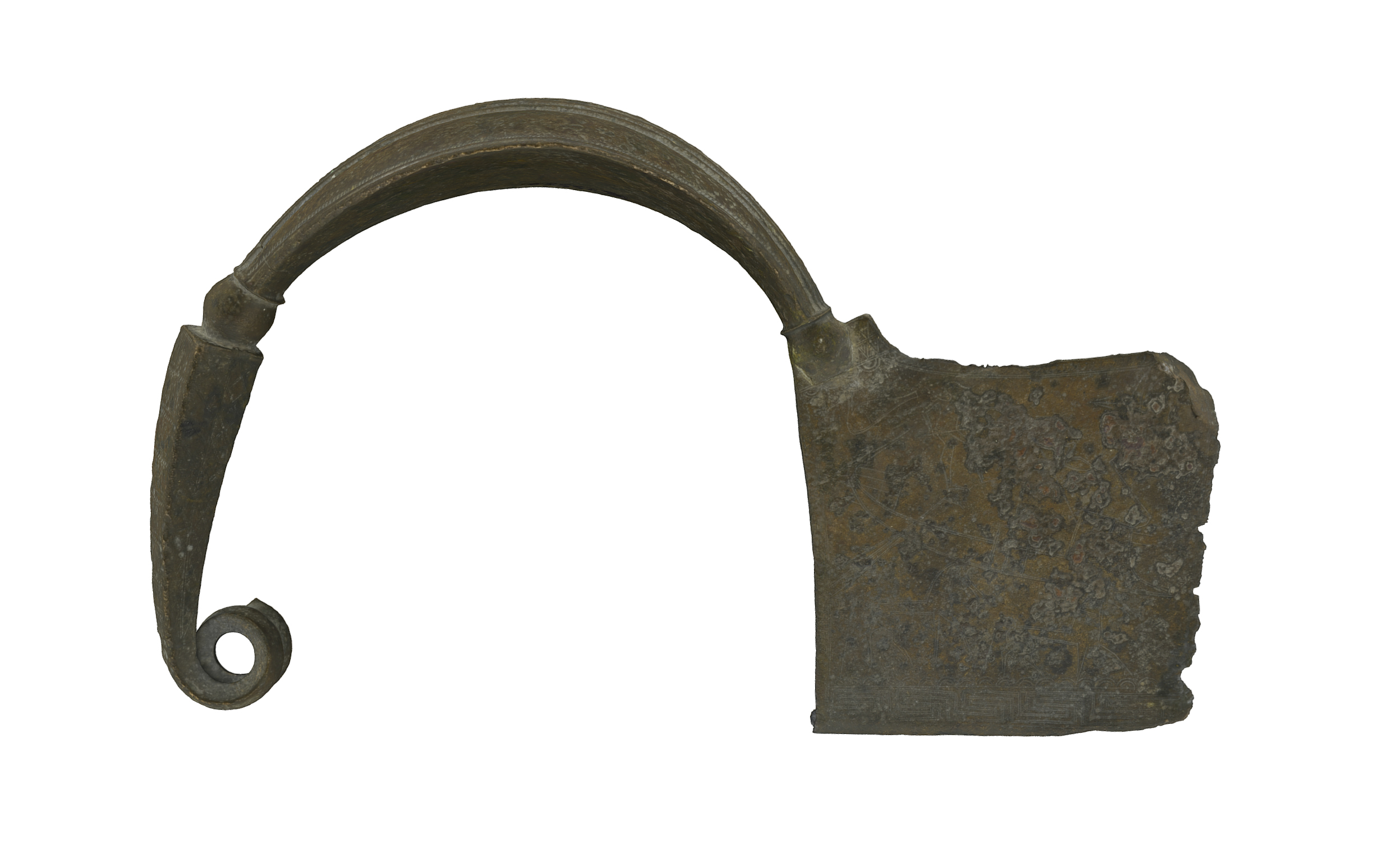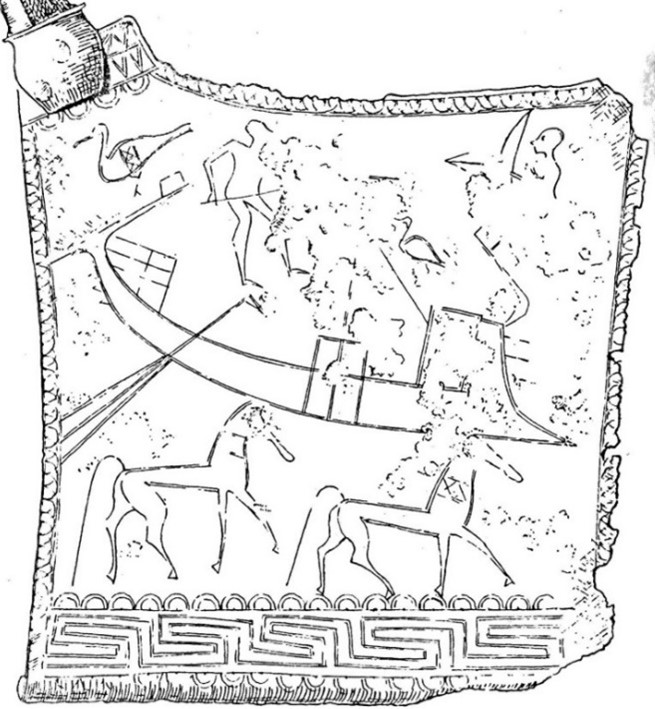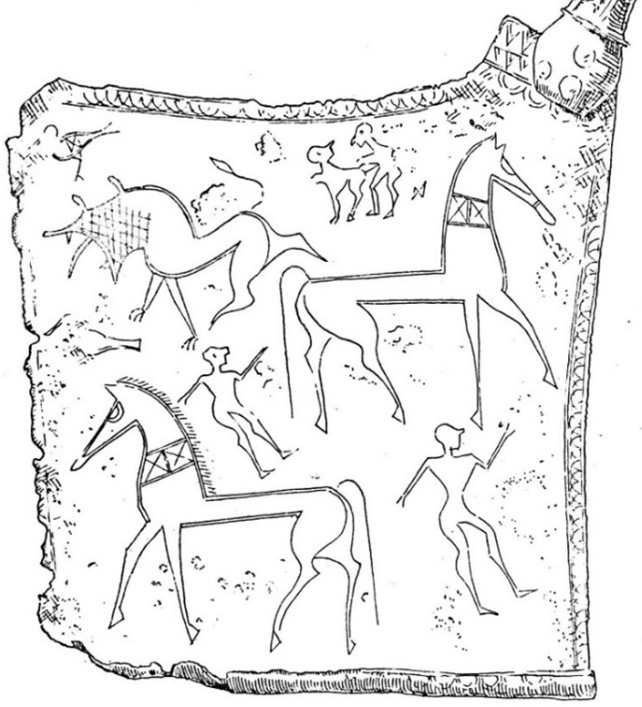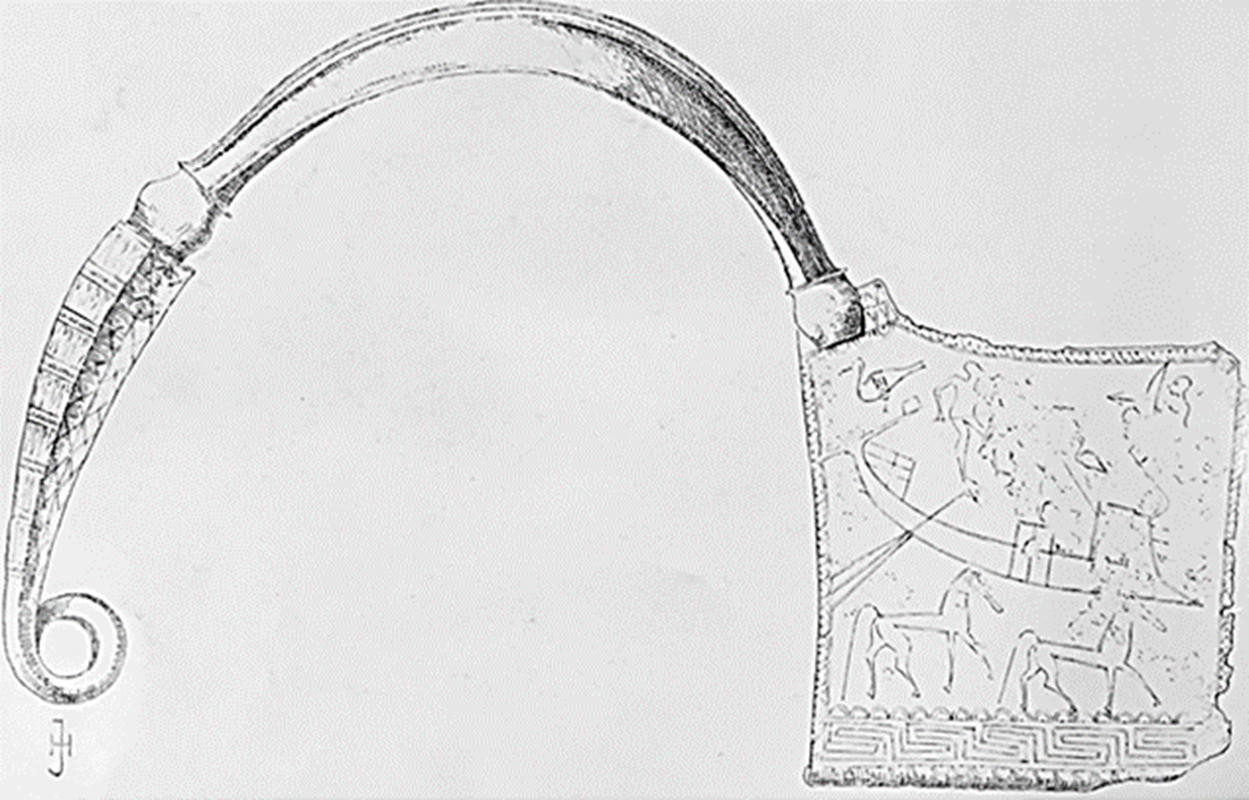The incision is damaged, in particular in the area of the mast. Single-levelled ship to the right with a low flat hull. Massive square bow with a concave stempost integrating the bow projection and ending in a horn device that curves forward then backward, tapering towards the end and capped by a rectangular extremity. The ram is short and tapers into a pointed end. Three horizontal timbers project from the stermpost. The forecastle is solid and rectangular. The sternpost begins by rising gradually, then curves sharply inward mid-way after which it becomes straight and tapers towards the end, capped by a rectangular extremity similar to the stempost. Three short horizontal timbers project from the sternpost near its base. Unlike the forecastle which is integrated to the bow and solid, the aftercastle is depicted as a separate rectangular structure composed of three horizontal timbers supported by two vertical stanchions. This suggests that it is possibly an open railing or alternatively made of fabric mounted on a light frame. The quarter rudder has a triangular oar blade with a central rib. It is situated farther forward from the aftercastle than customary for ship depictions in this medium. The mast was slightly forward of amidships. It survives only partially, with its base encased in the mast step system, a box-like structure that begins above the gunwale and continues across the hull down to the keel line. Part of the forestay attached to the forecastle is preserved.
Single-levelled galley
A64
c. 700 B.C.
Chaeronea
L (max): 17.8cm ; catchplate: 6.5 x 6.6 cm
Bronze fibula with a decorated catch-plate, broad oval bow and sail-shaped foot. Late example of conservative form
Archaeological Museum of Thebes 25558
Basch 1987: 193, no. 407; Hampe 1936: no. 140, pl. 6; Morrison and Williams 1968: 76, Arch. 12
Side A: Ship to the right. There is a figure floating near the stern section facing an opponent drawing a bow floating above the stempost. Two birds of differing size are shown perching on the sternpost and the forestay. There are two horses striding towards the right below the ship's hull
Side B: A lion, two horses, two birds, and four men placed in no specific composition in relation to each other. The horses and lion are on a larger scale.
Basch, L. 1987. Le musée imaginaire de la marine antique. Athens: Institut Hellénique pour la preservation de la tradition nautique.
Hampe, R. 1936. Frühe griechische Sagenbilder in Böotien, Ate¬ne : Deutsches archäologisches institute.
Morrison, J.S. and R.T. Williams. 1968. Greek Oared Ships: 900-322 B.C. Cambridge: Cambridge University Press.
